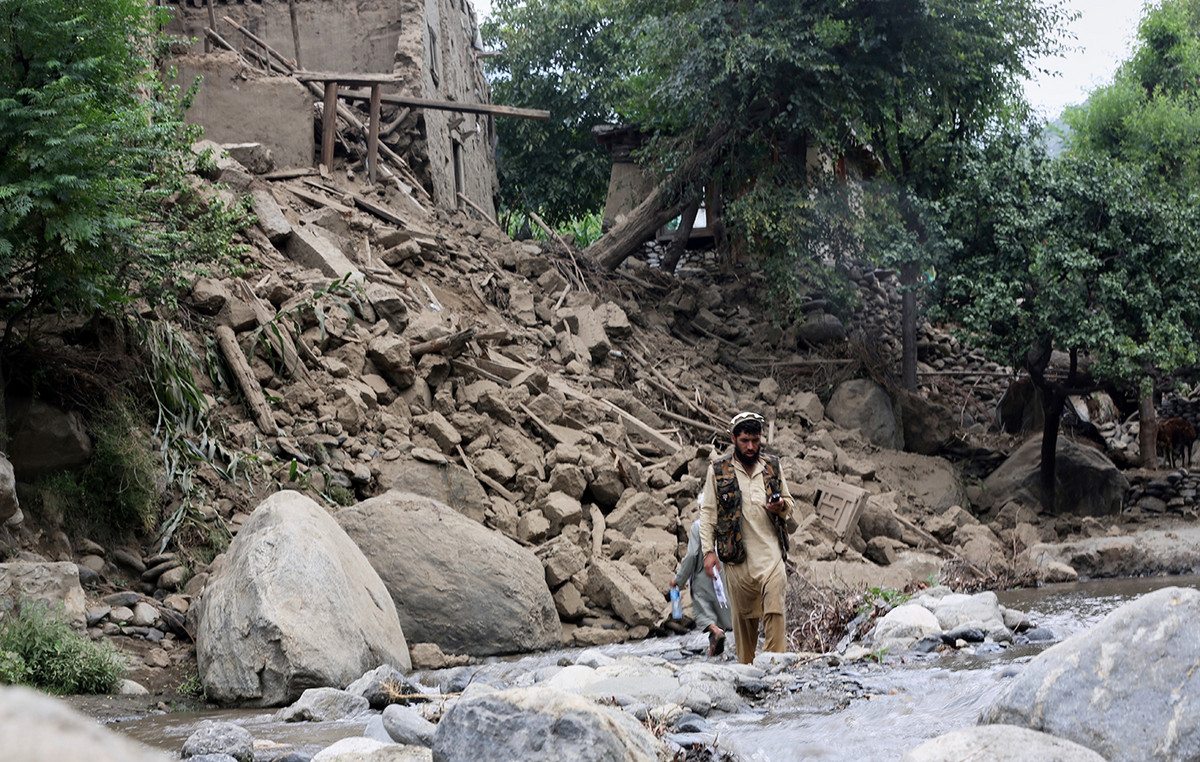The United States are trying to weaken a global agreement designed to help developing countries that fight against the impacts of climate change and other issues, according to a United Nations document seen by Reuters.
Donald Trump’s government opposes the outline of world financial system reforms to help developing countries on issues that include taxation, credit ratings and fossil fuel subsidies.
In addition, the management of the American wants mentions to “climate”, “gender equality” and “sustainability” to be removed.
The document also clarifies how the Trump government is trying to establish the “America First” policy, which includes opposition to efforts to slow down climate change and promote diversity in institutions at the center of global systemic solutions.
The 4th International Conference on Development Financing (FFD4), held once every decade and this year will take place in June in the city of Seville, Spain, aims to influence the strategic direction of the world’s financial institutions.
Countries agreed to FFD3, for example, to expand tax cooperation efforts so that developing countries could help define the rules, and in May last year more than 140 countries were involved.
“This conference aims to bring together world leaders and define underlying rules and priorities for funding development goals in the next decade,” Tom Mitchell, executive director of the International Institute for Environment and Development, told Reuters.
Changes in the draft of negotiations
Produced by permanent representatives in the UN of Mexico, Nepal, Norway and Zambia, with the help of the United Nations Secretariat, the draft of April 11 negotiates with the positions of the 193 nations involved in the discussions.
With the changes in progress in the World Bank and the International Monetary Fund in the fight against climate change already facing the resistance of US Treasury Secretary Scott Bessent, the document seeks to weaken efforts for additional reforms.
Among the specific points of the text that refer to systemic reform, the document shows that the US want to remove a reference to a “reform package” for sustainable development.
They want to replace a line that promises to “commit to reforming international financial architecture” with a promise to “recognize the need to increase their resilience and effectiveness in response to challenges in present and future crises”
These changes in language signal the degree of shared commitment that can be used as support for action or inaction in future negotiations.
UN Secretary-General Antonio Guterres recognized the need to overcome various challenges before the conference, but asked “all countries to be at the table in Seville focused on solutions,” spokesman Florencia Soto Niño told Reuters.
The White House, the Treasury Department and the State Department did not respond to comments requests.
Although the US’s position on development has become more rigid under Trump’s command, the document shows that he continues to support efforts that include developing countries more closely with the private sector and promoting innovation and financial literacy.
Climate disasters and new tax application
One of the main objectives of global reforms is to help the poorest nations deal with climate disasters, which are worsening due to climate change, and boosting economic development using low carbon energy rather than traditional fossil fuels.
President Donald Trump has abandoned UN’s Paris climate agreement, reduced foreign aid to US development by over 80% as part of a government review led by billionaire Elon Musk and embarked on a trade war that is damaging many poorer nations.
Among the measures of the FFD4 document to which the US opposes is an appeal for countries to explore “global solidarity rates” that could include taxes on highly polluting or super rich activities to fund sustainable development.
If included, taxes could be the subject of UN negotiations this year, and would reinforce a task force led by France, Kenya and Barbados aimed at developing such taxes between smaller groups in countries.
Other countries that oppose beyond the US include Russia, Saudi Arabia and China.
Exclusion of other paragraphs
The US is also trying to exclude a paragraph that asks companies to pay taxes on countries where economic activity occurs, another on how to help developing countries to increase fiscal transparency and another about the gradual elimination of fossil -inefficient subsidies.
Many of the poorest countries in the world struggle with high debts and reconstruction costs after disastrous storms, but the FFD4 document shows that the US want to exclude another paragraph on the reform of the credit classification system.
The excerpt includes pressure for evaluators to adopt a more tolerant approach to the poorest nations that voluntarily restructure their debts to invest in “green projects,” according to the document.
The US also opposes a commitment to ensure that countries receive “adequate and uninterrupted financing in appropriate terms of social protection and other essential social spending during shocks and crises,” the document shows.
Although the US has great influence as the largest shareholder in the World Bank, which grants loans and subsidies to developing countries, and the IMF, and is currently reviewing its role in both, it is likely that the draft agreement will change more as countries continued in May.
The final document is expected to reach a consensus in mid -June, and the US continues to press other countries to accept a weaker agreement, as negotiations are in view to adopting a consensus agreement.
This content was originally published in the US want to weaken global development agreement, says UN on CNN Brazil.
Source: CNN Brasil
Bruce Belcher is a seasoned author with over 5 years of experience in world news. He writes for online news websites and provides in-depth analysis on the world stock market. Bruce is known for his insightful perspectives and commitment to keeping the public informed.







